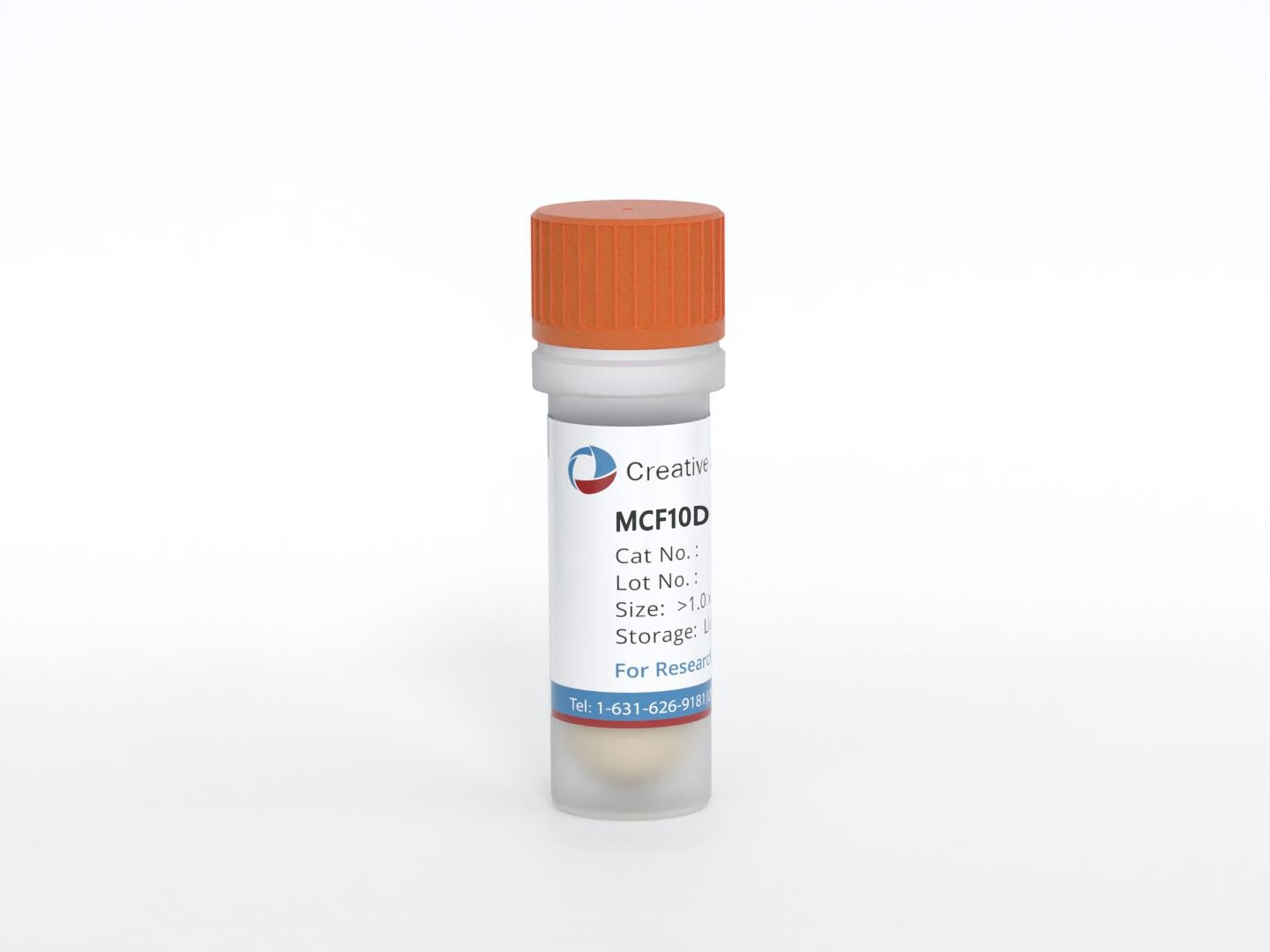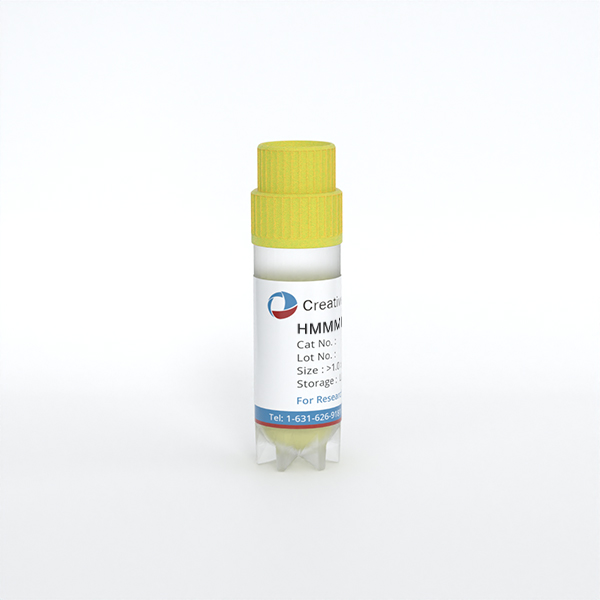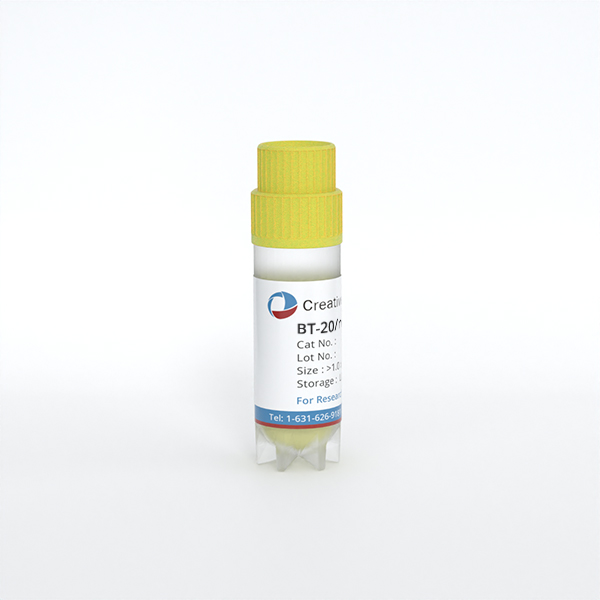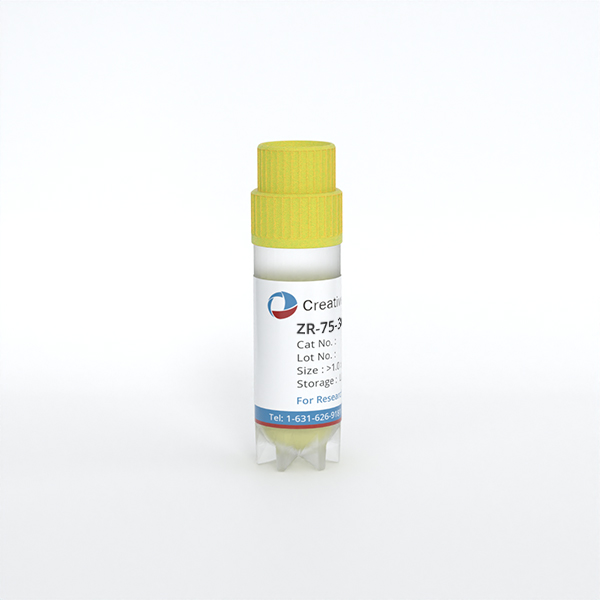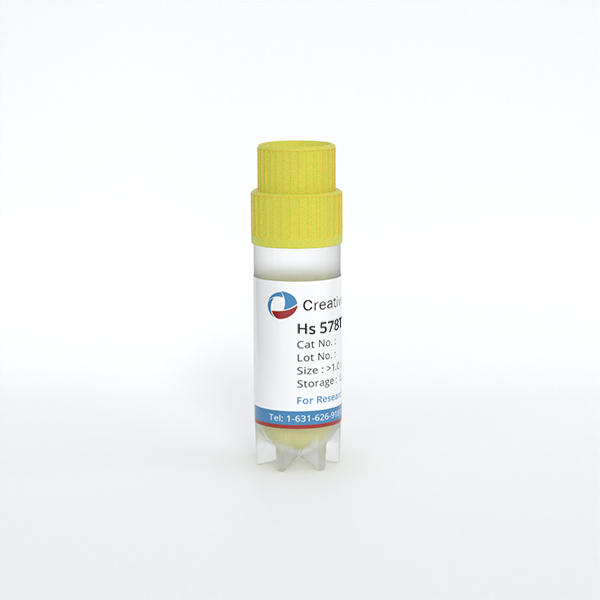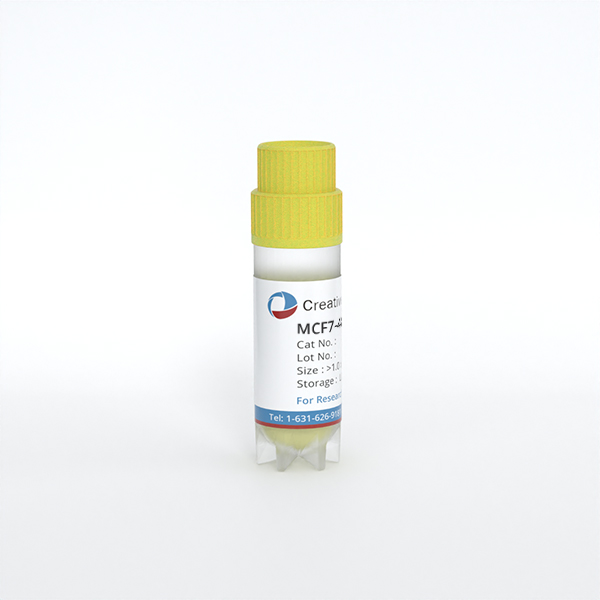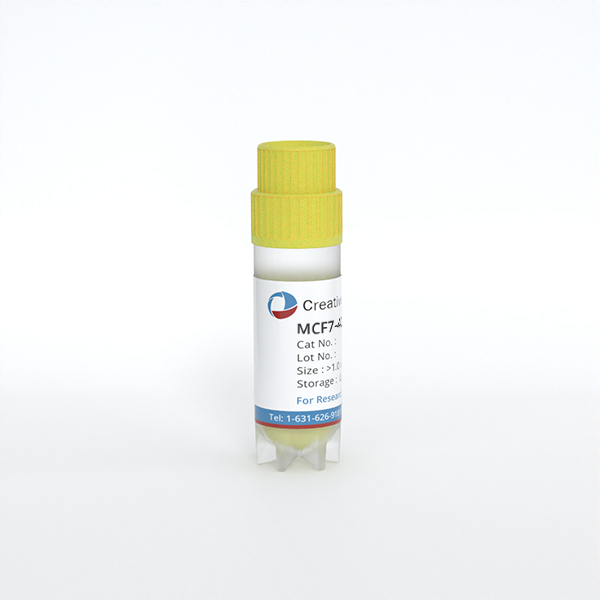
MCF7-422
Cat.No.: CSC-6289W
Species: Homo sapiens (Human)
Source: Pleural Effusion Metastasis
Morphology: continuous culture, grown as monolayer, morphology epithelial-like
Culture Properties: monolayer
- Specification
- Q & A
- Customer Review
Cat.No.
CSC-6289W
Description
Species: human, Caucasian female 69 years old;
Tissue: breast;
Tumor: adenocarcinoma;
Transfected with ER-pBact, human estrogen receptor cDNA, under control of the human beta actin promotor, resistant to G418S.;
Original line: MCF7;
Derived from: pleural effusion
Tissue: breast;
Tumor: adenocarcinoma;
Transfected with ER-pBact, human estrogen receptor cDNA, under control of the human beta actin promotor, resistant to G418S.;
Original line: MCF7;
Derived from: pleural effusion
Species
Homo sapiens (Human)
Source
Pleural Effusion Metastasis
Culture Properties
monolayer
Morphology
continuous culture, grown as monolayer, morphology epithelial-like
Disease
Invasive Breast Carcinoma of No Special Type
Quality Control
Sterility: mycoplasma negative, HOECHST and PCR
Storage and Shipping
Frozen with Culture medium + 50% FBS + 10% DMSO; ship in dry ice; store in liquid nitrogen
Citation Guidance
If you use this products in your scientific publication, it should be cited in the publication as: Creative Bioarray cat no.
If your paper has been published, please click here
to submit the PubMed ID of your paper to get a coupon.
Ask a Question
Write your own review
- You May Also Need
Related Products
Featured Products
- Adipose Tissue-Derived Stem Cells
- Human Neurons
- Mouse Probe
- Whole Chromosome Painting Probes
- Hepatic Cells
- Renal Cells
- In Vitro ADME Kits
- Tissue Microarray
- Tissue Blocks
- Tissue Sections
- FFPE Cell Pellet
- Probe
- Centromere Probes
- Telomere Probes
- Satellite Enumeration Probes
- Subtelomere Specific Probes
- Bacterial Probes
- ISH/FISH Probes
- Exosome Isolation Kit
- Human Adult Stem Cells
- Mouse Stem Cells
- iPSCs
- Mouse Embryonic Stem Cells
- iPSC Differentiation Kits
- Mesenchymal Stem Cells
- Immortalized Human Cells
- Immortalized Murine Cells
- Cell Immortalization Kit
- Adipose Cells
- Cardiac Cells
- Dermal Cells
- Epidermal Cells
- Peripheral Blood Mononuclear Cells
- Umbilical Cord Cells
- Monkey Primary Cells
- Mouse Primary Cells
- Breast Tumor Cells
- Colorectal Tumor Cells
- Esophageal Tumor Cells
- Lung Tumor Cells
- Leukemia/Lymphoma/Myeloma Cells
- Ovarian Tumor Cells
- Pancreatic Tumor Cells
- Mouse Tumor Cells
Hot Products
